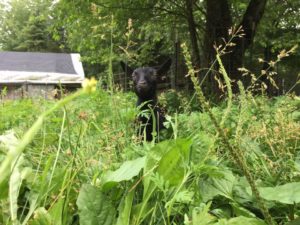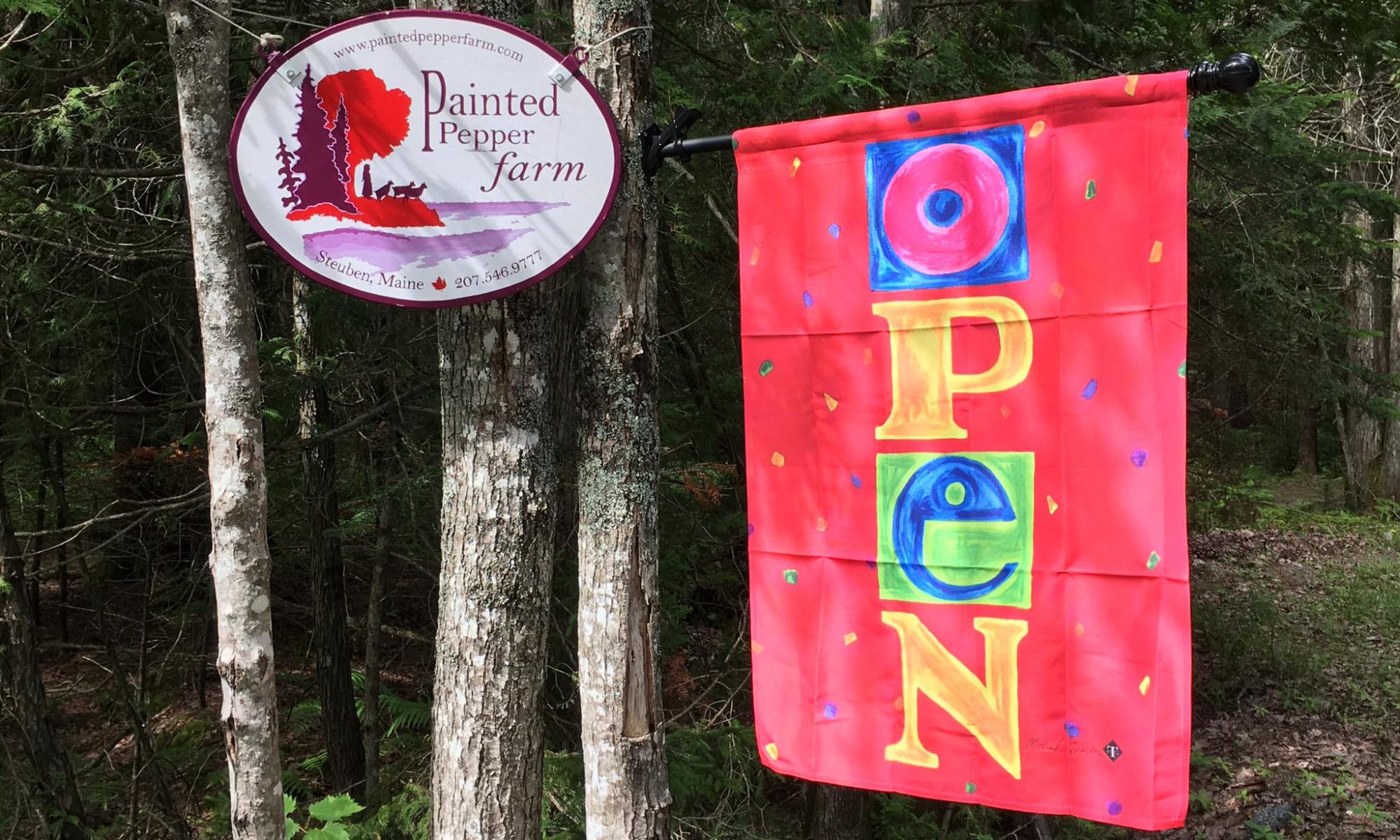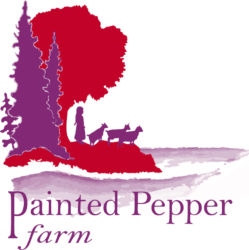
To start out you will need very little:
* Another Goat – Goats need a goat buddy!
* Hoof trimmers
* Carpenter’s Plane (also in catalog or at hardware store)
* Rubbing alcohol
* Ammonium Chloride (feed supplement for wethers/bucks)
* Goat mineral (Golden Blend or Sweetlix Goat Minerals are good choices) and a mineral feeder
* Free choice kelp meal and baking soda
* 16% goat grain & two feed bowls
* Fine, 2nd cutting hay & hay feeder (or 5 gallon buckets or horse hay bags to start)
* Water Bucket
* Shelter (at least 20 square feet for two Nigerians) & Fenced Yard (at least 260 square feet for two Nigerians)
* Shavings for bedding & Lime (at hardware store) to put down when you clean their shelter
*Manure bucket, small spring rake, square bottomed shovel, manure rake, pitchfork (choose your desired implements — you probably have most of these around already!)
*Things to jump on! — shelter roofs, electric spools, kids outdoor furniture, up to your imagination…
Eventually you will need needles, CDT vaccine & injectable selenium, but not for a year as all their shots will be set till then when you take them home. You may want a bathroom scale to track their weight gain, but not necessary. You may want two small collars to start with — if you get small nylon collars intended for small dogs, this will work.
You don’t need to do herbal or chemical wormers to begin with, but you should have fecal tests done by your vet in the fall and the spring to see if worming is indicated. Lice treating should be done twice a year in the early Fall & late Spring. Be sure to ask us about using the natural botanicals Neem & Karanja oil for this.
You should disease test your kids once they are 6 months old for Brucellosis, Johnes, CAE & CL — We do not anticipate you will have any troubles as our entire herd has tested negative for all of these, but it is a good practice and it is not practical to test them until they are 6 months old. Especially do this before you introduce a doe/doeling to your farm. It is not overly expensive and well worth the peace of mind! We disease test our herd on a rolling biannual basis – we recommend you follow up on the initial disease testing when they are 1 and 1/2 to 2 years old, and then test again two years later. For more information on disease testing, visit: WADDL – www.vetmed.wsu.edu
To begin with they just need a dry & clean home, lots of love and attention and plenty of free choice water, hay and minerals. They will get up to 1/2 pound of grain each per day until they are 1 year old, and then they will go down to .2# per day. We will send you home with a few pounds of the grain they currently eat so that you can transition them to their new feed slowly to avoid stress on that end.
When you pick up your goat(s), we will show you how to trim their feet — and of course we will always be available once they go home with you to answer questions or for you to come to the farm to learn other things as they come up.
HELPFUL LINKS:
American Dairy Goat Association http://www.adga.org
Fias Co Farm on Getting Your Goat (www.fiascofarm.com/goats/getting-your-goat.htm)
Recommended Reading: Storey’s Guide to Raising Dairy Goats by Jerry Belanger
Raising Goats for Milk & Meat by Rosalie Sinn
Natural Goat Care by Pat Coleby
GOAT SUPPLIES: Jeffers Supply Company 800.533.3377 www.jefferspet.com
Caprine Supply Company 800.646.7736 www.caprinesupply.com

